Life studying biomedical engineering in Africa
Naya, James Mbabila is studying biomedical engineering and is also the President of the Ghana Society of Biomedical Engineers University of Ghana Local and the Electoral Commissioner for the Engineering Students Association of the University for Ghana. This article focuses on his life studying biomedical engineering in Africa and also his aspirations for his future and the future of the medical industry in Africa. Naya, James Mbabila is an Educational Pathways International Scholar.
A biomedical engineering student – meet Naya, James Mbabila
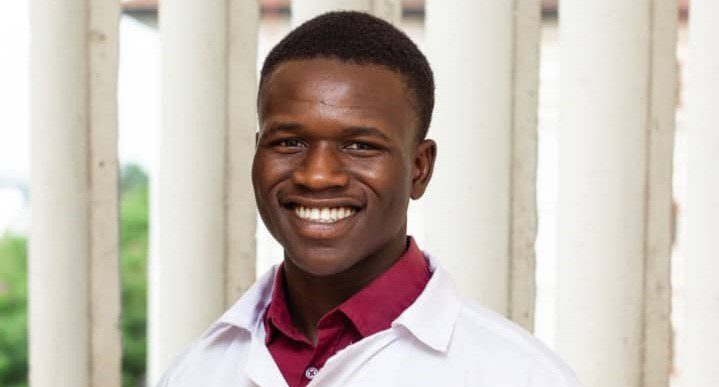

Background
Were you interested in science and engineering/ how things work when you were a child?
From a young age, I was drawn to science and engineering. This was because I was eager to understand and solve the problems in society. I pursued this interest through hands-on experiments and mini projects, such as making cars with milk tins. This curiosity fuelled my academic excellence. My understanding, if any, during those times was very superficial and I did most things for fun. My lifelong passion for discovery drives me to this day.
Was there anyone in your family or school who guided you towards engineering or towards working in the medical field?
As a first-generation student, I did not have family guidance to study engineering. However, my schoolteacher, Martin Ayamga, recognised my potential and laid the foundation for my interest in STEM. By nurturing my academic talents in science and maths, he helped me appreciate the value of formal education in these fields. I have had a lot more people who have assisted me in realising my academic journey, including my siblings and friends. I would say I am a product of the devotion of teachers and mentors, support of family, and personal drive to make the world a better place.
Studying biomedical engineering in Africa
Why did you decide to study biomedical engineering rather than another type of engineering?
I chose to study biomedical engineering because I have always had parallel interests in medicine and engineering. Throughout my education, I gravitated towards opportunities that combined these two passions. A mentor of mine who is a genetic engineer assisted me in exploring engineering and other STEM fields. Then I finally decided to pursue biomedical engineering. With a degree in this field, I hope to develop innovative medical devices and technologies. Then these can transform healthcare delivery in Ghana. Biomedical engineering allows me to leverage my aptitude for engineering while directly advancing healthcare and fulfilling my aspiration to help others. Though various engineering specialties, such as computer and aerospace engineering, appealed to me. In the end, it was biomedical engineering which was the optimal way to start my journey.
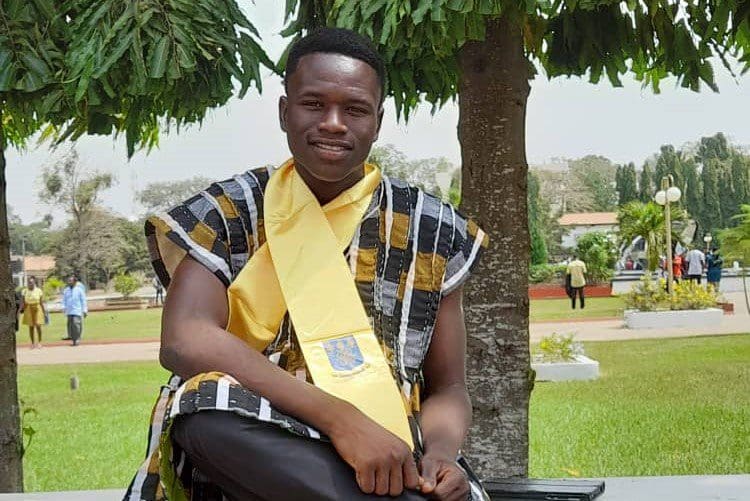

Inspirations
Has there been a particular person who has inspired during your studies?
The most inspirational person I have encountered during my studies at the University of Ghana is Ing. Professor Elsie Effah Kaufmann, a pioneer in the field of biomedical engineering in Ghana.
She is the current Dean of the School of Engineering Sciences. As the founding head of the Biomedical Engineering Department at the University of Ghana, Prof. Kaufmann exemplifies the spirit of innovation. This is what first further drew me to this discipline.
Under her leadership, the programme has flourished into an esteemed centre of research and learning. Prof. Kaufmann’s vision and dedication to advancing the study of biomedical engineering in Ghana have shown me the real-world impact that biomedical engineers can make. She epitomises the ideal of using one’s skills to serve others, which I hope to emulate as I embark on my own career. I feel privileged to learn from someone so accomplished and driven to make a difference.
I also take great inspiration from some faculty, graduates and students in my department.


Is there anyone else who has been an inspiration?
Other inspirations during my studies have been engineers like Kwadwo Safo Kantanka, and Dr. Thomas Mensah. As well, visionary entrepreneurs like Ibrahim Mahama. At school, Mr. Richard Asiamah (founder of Vispad Institute of Research), Kombat Bakpen, Lady Paula Doe Agbanu, Benin Sumani Safiu, among others, have also been impactful mentors and friends for me.
Greatest African Engineer or Scientist
Who do you think is the greatest African engineer or scientist?
Naming the greatest African engineer or scientist is challenging, but influential figures include Prof. Fred McBagonluri, Dr. Thomas Mensah, Kwadwo Safo Kantanka, Ing. Prof. Elsie Effah Kaufmann, and Ing. Kwabena Bempong (to name a few). Through ingenious inventions and pioneering research, these engineers have advanced healthcare, infrastructure, and technological development across Ghana and Africa as a whole. Their groundbreaking work is simply inspiring.
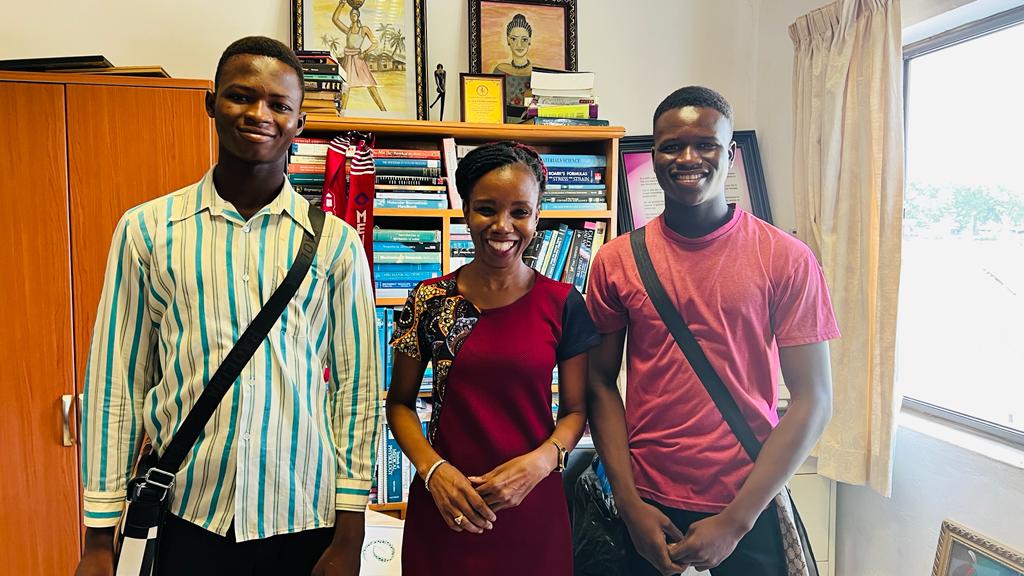

Internships while studying biomedical engineering in Africa
What is your experience of internships?
Though internship opportunities are limited in Ghana’s biomedical engineering industry, my experiences at a lab and hospital biomedical engineering unit have provided invaluable hands-on training. Interning allows young engineers like me to apply classroom theories to real-world equipment and medical technologies. Troubleshooting challenges on-site teaches critical thinking, adaptability, and problem-solving skills. Internships also provide networking opportunities to meet experienced engineers. These practical experiences motivate me to address the gaps in Ghana’s healthcare system through innovative engineering solutions. These inspire me to make the change I want to see in my country.
What did you learn from each of your internships?
My internship at Powerhouse Hospital’s medical lab strengthened my anatomy, physiology, and biotechnology knowledge by providing hands-on experience with human sample analysis and blood testing.
I gained valuable insights into how test results relate to biological systems and disease states.
At Komfo Anokye Teaching Hospital, I applied bioinstrumentation concepts to maintain and repair equipment ranging from operating room tools to imaging modalities. This allowed me to bridge theory with practice in areas like installation, calibration, troubleshooting, and preventative maintenance.
Finding internships and networking
What are your tips to other biomedical engineers for finding internships?
The first step in landing an internship is to identify companies or hospitals that align with your interests and proactively reach out to their human resources departments to inquire about potential openings. Securing a letter of endorsement from your university programme or department can boost your credibility when applying. Attending career fairs, conferences, and networking events in the engineering industry provides opportunities to connect directly with company representatives and convey your passion for the field. When applying, be sure to highlight coursework, technical skills, and any hands-on experience you have with programming, equipment maintenance, troubleshooting, or problem-solving – these practical abilities are valued in interns. Follow up professionally and persistently on all applications and consider pursuing unpaid roles if needed to gain that critical first experience. With dedication and preparing a good CV, biomedical engineering students can uncover rewarding internship opportunities.
How valuable is networking do you think?
Networking is tremendously valuable for succeeding as a biomedical engineer in Ghana. Making meaningful connections with professors, industry leaders, and peers provides access to mentorship, internships, job prospects, and collaboration opportunities. Nurturing relationships where you can both give and gain knowledge and experience will enrich your perspective and expand your possibilities.
As the saying goes, “your network is your net worth” – developing a strong network of contacts and advocates will be the bedrock that supports and elevates your career.
Volunteering while studying biomedical engineering in Africa
You are a keen volunteer. Why do you think volunteering is important?
Volunteering enables me to support impactful initiatives and give back to my community. It provides hands-on learning and growth opportunities by allowing me to apply classroom concepts in real-world settings. From developing practical engineering abilities to honing soft skills like communication, volunteering makes me a well-rounded engineering student. It connects me with professionals who can become great mentors and collaborators. Most importantly, volunteering gives me immense fulfilment knowing I’m part of bettering society beyond monetary measures. The benefits volunteering brings are invaluable.
What have you learnt from your voluntary positions which will help you in your career as a biomedical engineer?
Through my volunteer work, I’ve developed strong communication and teamwork skills that will aid me as a biomedical engineer. Leading volunteer teams has boosted my confidence when speaking to large groups. I’m able to collaborate effectively to achieve shared goals. These interpersonal abilities have been valuable to me as a student.
Typical week studying biomedical engineering in Africa
Can you describe your typical week and what it involves?
My weekdays are filled with academic work – attending lectures, labs, group projects, and studying from 7:30AM to 7:30PM.
I typically start my day at about 5AM and spend weekends revising course material, tutoring other engineering students, exploring my surroundings, and attending church on Sundays.
I also have leadership duties in the Ghana Society of Biomedical Engineers, University of Ghana chapter (GSBE-UG) and the Engineering Students Association of the University of Ghana (ESUG). Time management and maintaining a focus on learning are essential to balancing my courseload.
How much of the time is spent studying and how much doing other things?
I dedicate at least 6 hours per day to personal study time, in addition to my scheduled coursework. I spend up to 2 hours daily on extracurriculars. On some Saturdays, I work a part-time job for around 4 hours.
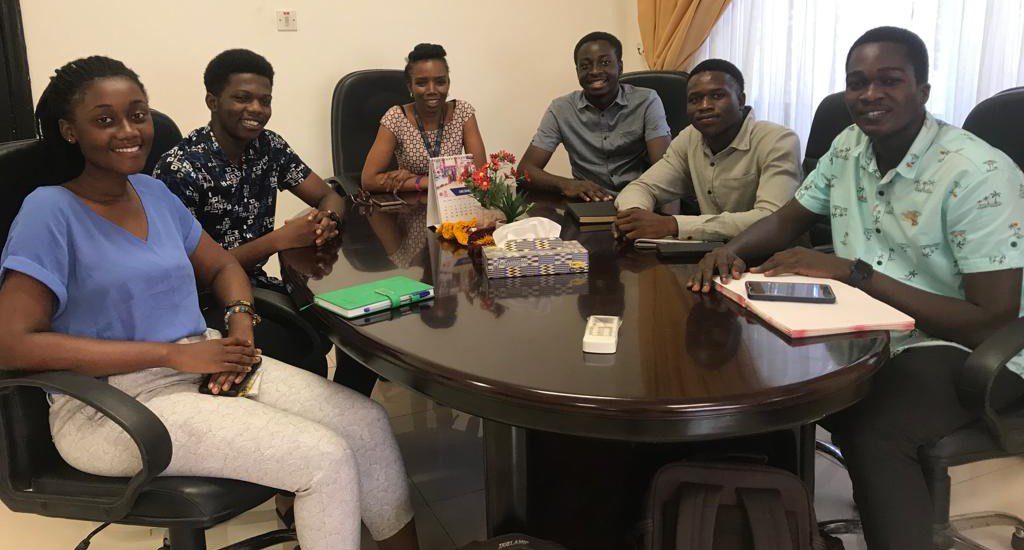

Learning
How can you learn from other parts of the world while you are a student in Ghana?
I learn from other parts of the world through online courses like the Virtual Immersion into Biomedical Engineering programme by Worcester Polytechnic Institute in the USA, and the QubitbyQubit Quantum computing course. In addition, I research how universities abroad structure their biomedical engineering programmes. I also study innovations at international biomedical companies like Dräger and Boston Scientific. These digital experiences allow me to connect and collaborate with peers and experts globally right from Ghana
What are the different ways of growing as an engineer?
The keyways I can grow as a biomedical engineer include continual learning through coursework and independent study, as well as gaining practical hands-on experience through labs, projects, and internships. Staying up to date on latest technologies and innovations in the field will also be important for my development as an engineer.
What advice would you give someone still at school but considering studying biomedical engineering?
I’d advise students interested in biomedical engineering to reflect on their passions and purpose. If driven to solve health issues with engineering, a biomedical programme like at the University of Ghana is a great path. Strong foundations in physics, maths, and chemistry are prerequisites to excel in this hands-on, problem-solving field. With the right interests and academic preparation, anyone can become a skilled biomedical engineer able to revolutionise healthcare.
The future
What are your hopes for your future career?
My deepest hope is to build medical device industry capacity and help inform policymaking through innovations in biomedical engineering for improvement in healthcare.
As a native of Ghana, I am keenly aware of the health challenges facing my home country and the African continent as a whole. This has inspired my dream to pursue advanced degrees from premier institutions like MIT, Harvard, or the University of Pennsylvania, where I can gain the technical expertise and global perspective needed to make a real difference.
After completing my graduate studies, I envision returning to Africa to pioneer collaborative efforts between engineers, doctors, and community leaders especially in industrial bioinstrumentation. By harnessing our collective knowledge, I believe we can develop medical equipment and technologies specially tailored to improve outcomes for prevalent health conditions.
It will take dedication and perseverance, but I am committed to doing my part to uplift healthcare and expand access to life-saving treatment – not just in Ghana, but across Africa.
I know the road ahead will have twists and turns, but my purpose remains steady – to innovate in service of humanity. With the right education and the willingness to learn from and work alongside others, I believe my contributions can help save and improve lives for generations to come. This goal fuels my passion each day as I take steps toward a future career where I can fulfil my potential for positive impact.
Biomedical engineering and studying in Africa
How do you think biomedical engineering will change in Africa in the next 20 years?
The future of biomedical engineering in Africa is bright, as the continent’s young, ambitious population increasingly recognises the field’s immense potential for improving healthcare. In the next two decades, I foresee Africa transitioning from primarily importing medical equipment to designing, manufacturing, and exporting its own innovative technologies.
This shift will be fuelled by growth in training programmes at African universities, research collaborations with international institutions, and public-private partnerships to build local capacity. As engineering becomes ingrained in African healthcare systems, we will see revolutionary medical devices and digital health solutions tailored for the unique needs of African patients.
By 2044, I predict over 60% of biomedical devices used on the continent will be African made, with thriving MedTech sectors in countries like Ghana, South Africa, Kenya, and Nigeria. We will also have more African engineers leading global conversations on topics like frugal innovation and leveraging technology for universal health coverage.
Realising this future, however, will require inspiring young Africans to study biomedical engineering and apply their talents at home. It will also take policies that support technology development and commercialisation. If we nurture the right knowledge and ecosystem, I am confident that biomedical engineering will transform healthcare access and outcomes across Africa. The change begins now, with people like me dedicated to putting African innovations at the forefront of global health technology.
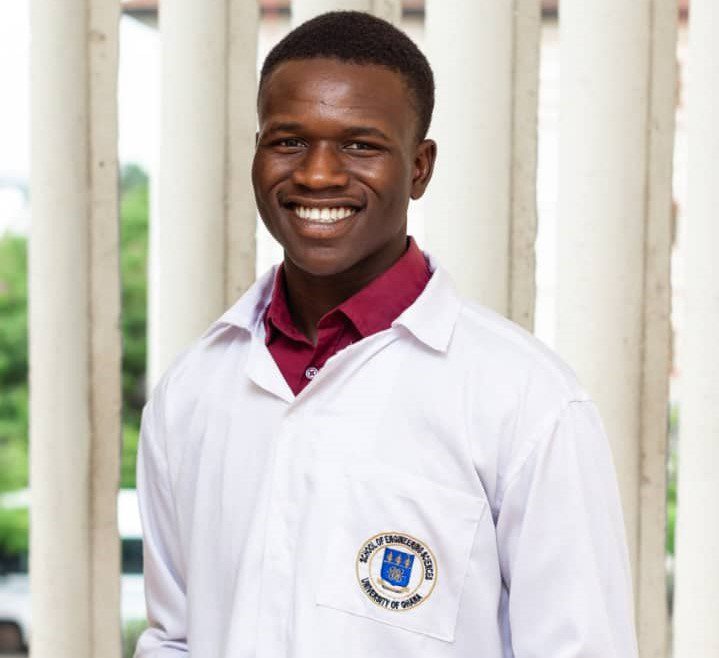

Further reading
Life of a Biomedical Engineer in Canada


Responses